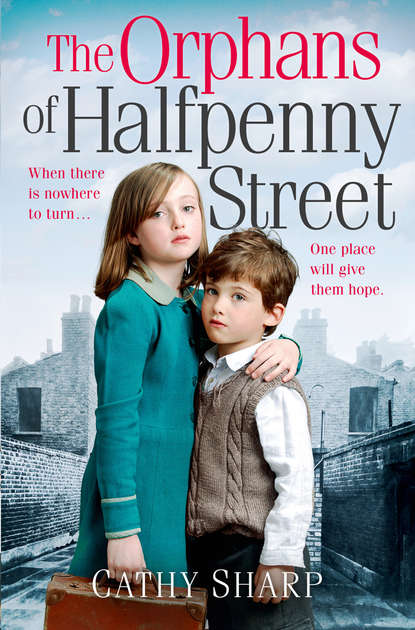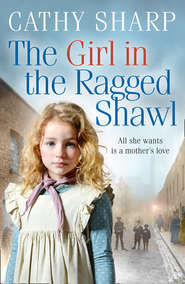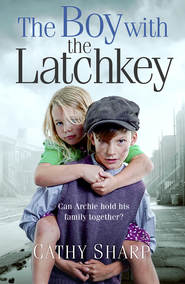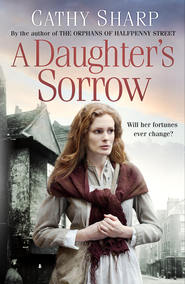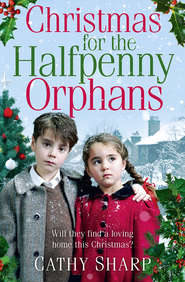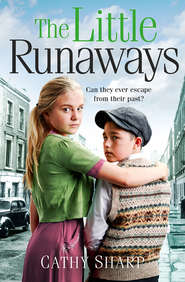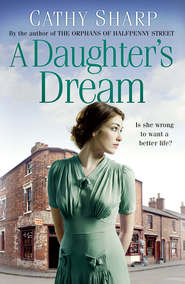По всем вопросам обращайтесь на: info@litportal.ru
(©) 2003-2024.
✖
The Orphans of Halfpenny Street
Настройки чтения
Размер шрифта
Высота строк
Поля
Ma would laugh and warn her that pride came before a fall, but Mary Ellen thought that her sister was right. Why shouldn’t women have more say in their lives? And it wasn’t right that people went hungry. Yet when she said so both Ma and Rose told her she was too young.
‘It’s not really the Government’s fault,’ Ma said. ‘There isn’t enough of everything to go round and things haven’t got going yet after the war.’
‘And who is to blame for all the shortages, the way the shops are empty even though the war has been over for months and months; more than two years? Who says we have to go on being rationed? No one has enough to eat, Ma. I can’t even buy a decent pair of shoes for work. What did all those men fight for if it wasn’t to make life better for us all? If those fat idiots in Westminster stopped rabbiting on and sorted things out perhaps we shouldn’t have to put up with all this austerity. With a country to rebuild there should be plenty of work for everyone and money to live decently – but it’s still hard to find work for most of the men, even though it may not be as bad as it was after the first big war.’
Mary Ellen sort of understood, because she was good at listening to people talking and because she was small and quiet they didn’t always realise she was there. She heard Mr Jones the butcher talking about the fact that he couldn’t get supplies of lamb from his usual suppliers.
The big freeze in January and February had made it seem that life in Austerity Britain could not get worse. And the floods in April with the resulting catastrophic loss of livestock, with millions of sheep drowned and arable crops flooded, had only aggravated the situation.
Yet here in the East End, which had taken much of the damage during those terrible nights of war when waves of bombers flew like great birds of prey over the city, disease and poverty still haunted the streets. Life had always been hard for these people and somehow they endured, though they never stopped moaning about the bloody Government. Moved by the pity and despair she saw in the faces of wounded men, returned to a life without work and precious little to eat, Rose was fired with a zeal to do what she could to put things right, to make life better for others as well as herself. A nursing career was the only way she knew to leave the poverty of the East End behind her and find the kind of life she wanted: a way of forgetting the drabness of life in Austerity Britain.
Mary Ellen admired her sister. Rose was dark-haired and beautiful, with her pert nose, full red lips and firm chin. She was also one of the most determined people that Mary Ellen had ever come across.
Mary Ellen finished chalking the squares for her game of hopscotch and then selected a flat stone from amongst the filth in the gutters. Her chores finished for the day, she’d come out to play while Ma had a rest on the bed, and they waited for Rose to return home from work with food for their tea.
Mary Ellen threw her stone into the first square and hopped into the one after it. She was preparing to perform a hop, skip and jump before turning to go back and pick up her stone when a voice spoke from behind her and made her start and lose her balance.
Turning, she saw a boy of similar age to her own. He was a little taller, dressed in long trousers that had been cut down from an old pair of his brother’s, a washed-out shirt and scuffed black boots. His dark auburn hair was tousled and unwashed, his nose red and dripping and there were streaks of dirt on his face where he’d rubbed it with his filthy hands. As she watched he wiped his nose on the back of his hand and then, to her disgust, slid his hand down his trousers. Ma might be ill and they might be poor, but Mary Ellen was clothed in an almost clean cotton pinafore skirt and blouse her mother had made before she became ill, and she had better manners than to wipe snot on her dress.
‘That’s rude, that is, Billy Baggins,’ she said. ‘What did you make me jump for? I shall have to start again now.’
‘I didn’t mean to, Mary Ellen,’ he answered meekly. ‘Can I play?’
‘You’ll have to find a stone,’ she said, looking at him curiously but without malice. Billy Baggins had no mother and his father had recently been killed in an incident on the Docks. Mr Baggins had been a bully with a loud voice, who hit both his sons whenever he was drunk, but at least he’d kept the family together and they hadn’t starved. Since his death, Billy’s elder brother had cleared off to no one knew where, and Billy had been collared by the authorities who had said he was going to be put into care.
Mary Ellen had felt sorry for him, because he might look unkempt and his manners were rough, but she knew he was kind and generous. When her own father had died, Billy had been the only one who understood how she felt, sharing his sherbet dip with her as they sat on the doorstep and she battled with her tears. He was her one real friend in these lanes and she’d missed him when he’d gone off to stay with his nanna. She knew how bad he must feel now that his own father was dead and all he had was an old lady and his rogue of a brother. ‘I thought you’d gone away?’ she said now.
‘Not yet,’ he said. ‘I’ve been stayin’ with me nanna in Whitechapel, but she was taken into hospital sudden and I came home ter see if Arfur had come back.’
‘Has he?’ Mary Ellen asked sympathetically, but with little expectation of a good outcome. Everyone knew that Arthur Baggins was a bad ’un.
‘Nah, didn’t fink he would’ve,’ Billy said. ‘Came ter make sure ’cos the bloody council bloke will ’ave me in a home afore you can sneeze if I don’t watch it.’
‘That’s bad, that is,’ Mary Ellen said, feeling her eyes sting with tears she would never dream of letting Billy see. They weren’t just for him, because it was going to happen to her too – and she hadn’t got anyone else she could go to, because her grandfather hadn’t even opened the door to them when Ma had tried to tell him she was ill. She hated the thought of leaving her home and being with people she didn’t know, and her voice wobbled as she asked, ‘What are you going to do?’
‘Don’t know,’ he said and pounced on a stone with glee. ‘This is a good ’un, this is.’ He showed it to Mary Ellen, who nodded her agreement. Because she was feeling sorry for him, she told him he could have first go. He grinned, showing a gap in his bottom set of teeth. ‘You’re the best friend I’ve got. I wish I could stay wiv you and your ma.’
‘Ma’s not well.’ Her heart felt as if it were being squeezed, because she was afraid of what was going to happen to her. ‘She’s got to go away … and that means I can’t stay here.’
‘Why ain’t your Rose ’ere then, if yer ma is bad?’
‘She’s going to be a nurse. She’ll work in a hospital and live in the home for nurses. She’s too busy to look after me, she said so.’
‘That’s bad fer yer then, Mary Ellen.’
‘Yes,’ Mary Ellen agreed unhappily, moving from one foot to the other. ‘Rose said they’re going to put me in St Saviour’s. I heard them talking about it the other night. I think Ma might go away to the hospital … somewhere a long way off …’
‘That’s rotten luck,’ Billy said. Then he threw his stone, did the feet-apart jump and the hopping motions, as he went up the squares and down again to retrieve his stone without a fault. ‘I reckon that’s where they might send me, St Saviour’s. I wouldn’t mind being sent there if I thought you would be there an’ all …’
‘No,’ she replied doubtfully, watching as he threw for the next square and set off again. He performed the actions perfectly. She wasn’t going to get a turn for ages at this rate. ‘What do you think they do to you at that place? Is it a house of correction? I don’t know what that is but I heard someone say they ought to send your Arthur there when they thought he broke into the corner shop …’
Billy looked anxious, because his brother had been in trouble with the police over that years ago, but no one could prove he’d done it and so he’d got away with the crime.
‘Nah,’ he said and threw his stone, which missed. He swore, a word that would have earned him a cuff round the ear from Mary Ellen’s mother. ‘It’s your turn. Proper put me off, that did – but St Saviour’s ain’t a punishment house. Those places are for bad boys, not orphans. Not that you’re an orphan, yer ma is still alive. Still, sometimes they put yer in a home even if both of ’em are still around. I heard as they’re all right at St Saviour’s – not like some places where they treat yer rotten. Nanna told me I should go there. She warned me she was too old to have the care of a young lad, and I reckon it’s the worry of it wot’s made her bad.’
‘I put you off; you can throw again,’ Mary Ellen offered, because he looked worried about his nanna, but he insisted it was her turn. She threw, hopped up the squares and executed a perfect turn, coming back to balance on one leg as she picked up her stone. ‘I reckon we’d be all right there together – it wouldn’t be as bad as if we were on our own and didn’t know anyone.’
‘All right,’ he said and gave her a wide grin. ‘If they say that’s where I’m goin’ I’ll let them put me there. I can always run orf if I don’t like it.’
‘Where would you go?’
‘Don’t know; I’d probably just hang about the streets until I could find Arfur. There’s plenty of bombsites wiv ’ouses half standin’ where you can hide. Me bruvver won’t have left the East End and he might let me stay wiv him if I asked,’ he said hopefully.
‘It would be better than living on the streets alone, I suppose.’ Mary Ellen didn’t much like Billy’s brother. He was mean and vicious and made her feel nervous when he looked at her. ‘Besides, you’re nine, aren’t you? How long can they keep you at places like that?’
‘If Dad was alive I should’ve gone to work down the Docks as soon as I was twelve, that’s wot he told me. I ain’t sure if it was legal but he said he’d be damned if he kept me any longer than me twelfth birthday. He was an old devil but I wish he was still around.’
‘You’ve only got three years until you can work then,’ Mary Ellen said with a sigh. ‘I’ve got ages more before I can train to be a nurse like Rose.’
‘Work’s a waste of time if yer ask me,’ he said, watching as she completed a second turn. ‘Arfur says he can earn more in one night than me farvver made in a month.’
‘What does Arthur do?’
‘I dunno,’ Billy said, but Mary Ellen thought he was lying. She could always tell, because his ears went red and so did his neck. Rose said Arthur was a thief for certain, but she couldn’t say that to her friend. She threw for a top square and missed, and Billy chortled, stepping in to throw his own stone. This time he landed it exactly where he wanted and set off up the squares. He was on his way back when Mary Ellen saw her sister coming down the lane and knew it was time to call a halt. Before she could speak the delivery boy screeched to a stop beside her.
‘Wotcha, Billy,’ Bertie Carter called. ‘I ain’t seen yer for a while. Where yer been?’
‘To stay wiv me nanna,’ Billy said, his attention turned. ‘What yer doin’, then?’
‘Got a job delivering sausages,’ Bertie said. ‘Me bloody pa’s drunk all his pay again so ma told me to get out and find a job.’
Mary Ellen saw Rose glaring at her and knew she would be annoyed to see her talking to two boys she would describe as being rogues.
‘I’ve got to go, Billy,’ she said. ‘It’s time for my tea now.’
‘All right,’ he agreed but looked disappointed. ‘It was nice seein’ yer, Mary Ellen. Don’t forget, if they put me in that home I shall be there waitin’ fer yer …’
‘I’m orf,’ Bertie said. ‘Yer can come wiv me, Billy. I’ll get a bag of chips on me way home and you can share ’em.’
‘All right,’ Billy agreed.
Whistling, he ran off after Bertie, the pair of them reaching the end of the lane just as Rose came up to Mary Ellen. She stared after him with a look of annoyance on her pretty face. ‘Was that that Baggins boy?’
‘Yes. His nanna’s gone into hospital and he came to see if his brother is back, but he isn’t – and they’re going to put him in a home.’
‘In my opinion they should have done it long ago,’ Rose said. ‘If he’s left to run the streets he will turn out just like that good-for-nothing brother of his …’
‘Billy isn’t like his brother.’





